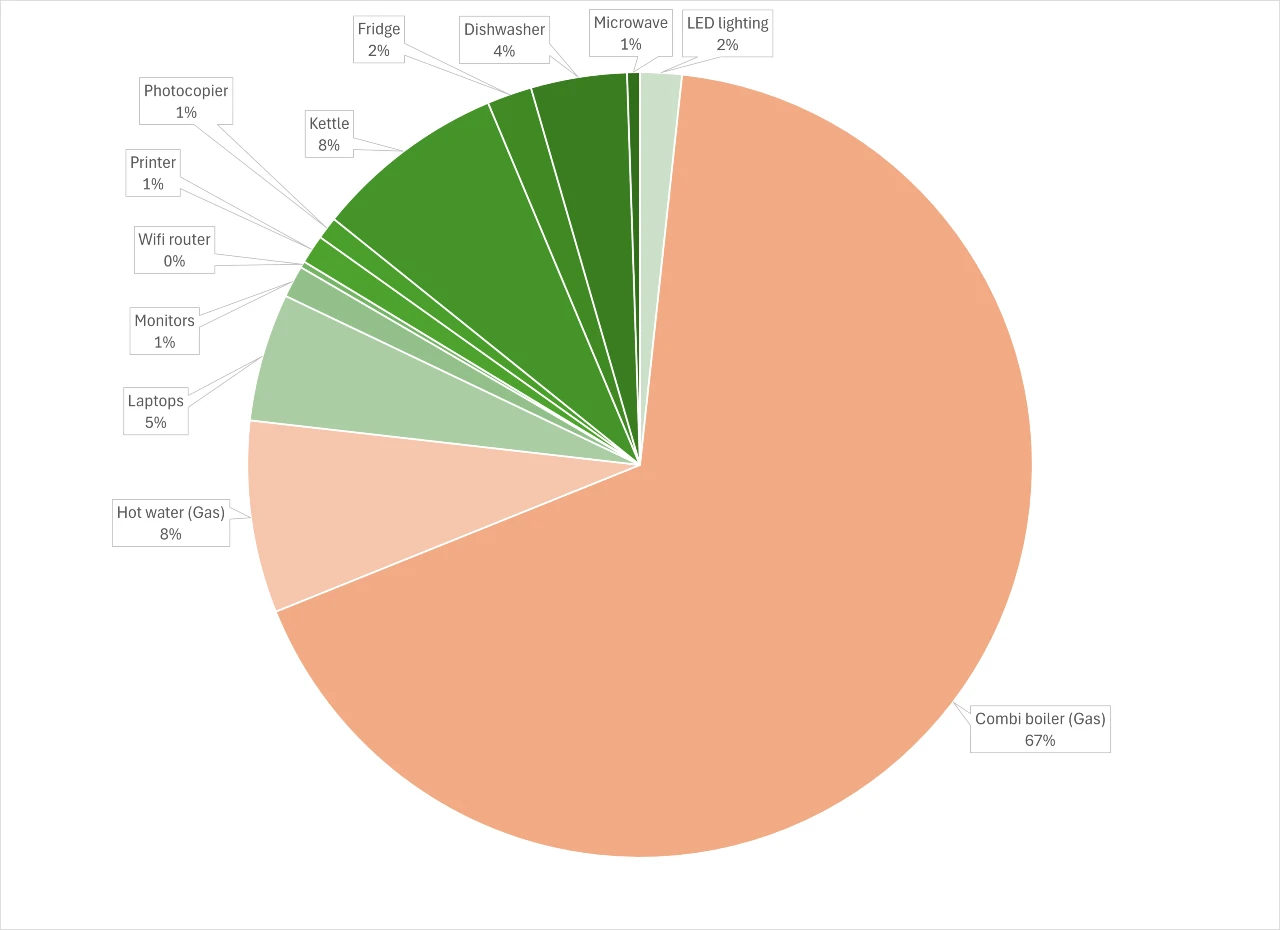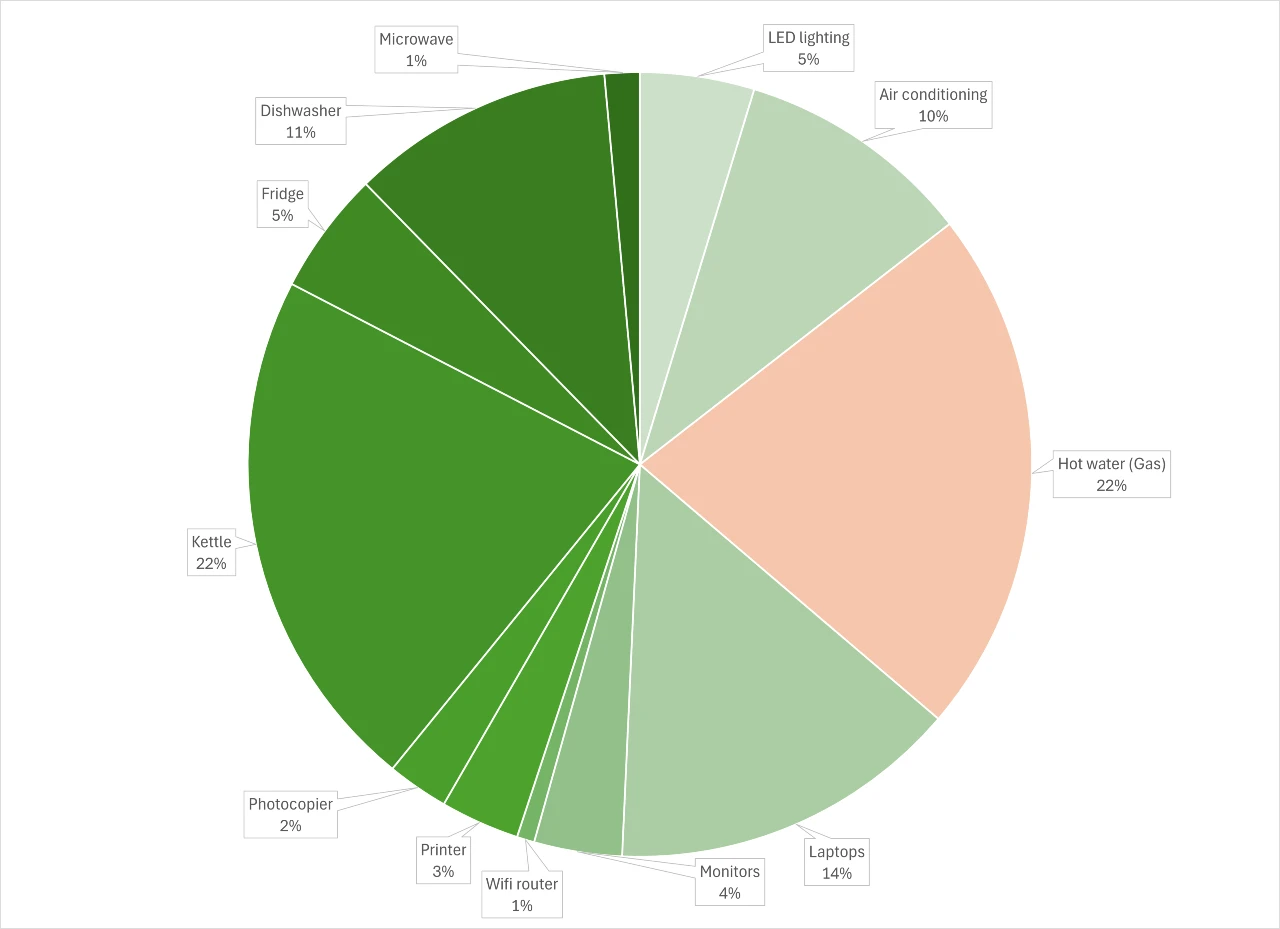How to calculate your business energy usage?
There are two distinct methods for calculating your business energy usage, and in this article, we will explore both:
Let’s start with the first method, which is the easiest.
Calculating your business energy usage with your meter
Most commercial properties are equipped with electricity and gas meters. These meters serve to record the energy consumed by your property so your business energy supplier can accurately charge you on your business energy bill.
The dial on the front of your meter displays the amount of energy, in kWh, passing through it.
To measure your business energy usage over a set period, you will need to conduct two separate meter readings. Here is how to monitor your energy consumption over a month:
- Take a meter reading on the first day of the month.
- Take another meter reading on the last day of the month.
- Subtract the first reading from the second to calculate your consumption.
Here is a worked example: if your first reading is 004323 and a month later it is 004454, then your business has consumed 131 kWh of energy.
For more information, here’s our full guide to business energy meters.
An easier method to track energy usage is by employing a business energy monitor that automatically collects data from a half-hourly meter or a smart business energy meter.
Calculating business energy usage: Considering each device
Your company’s energy consumption is the sum of the energy used by each device connected to your mains.
While it’s possible (although perhaps not always practical) to account for all devices within your commercial property that use electricity or gas, each device has its own individual consumption rate when in operation.
In the article, we’ve summarised the typical individual energy usage of common office items.
To calculate the energy consumption of a specific device, we take the power rating of the device and multiply it by the number of hours it is used. For example:
A kettle is used three times a day to make tea. Assuming it’s a 2 kW kettle that takes a minute to boil, the calculation would be:
3 uses x 20 working days x (2 kW / 60 minutes) = 2 kWh per month.
Repeating this process for all your devices that draw electricity from the mains provides a method to calculate your overall energy consumption.
How do you measure energy usage?
Electricity and gas supplies both provide your business with a source of energy, which is utilised in activities such as heating water or powering desktop computers.
The quantity used to measure energy is “joules”. The scientific definition of a single joule is the amount of energy required to raise the temperature of one gram of water by one degree Celsius.
For energy consumption the term “watt” is frequently used. A “watt” represents one joule of energy being used each second.
For example, a kettle labelled 2,000 watts consumes 2,000 joules of energy every second it is heating water.
Because watts measure energy in individual seconds and in small increments, this unit is not particularly practical for measuring the energy consumption of an entire business. Instead, in business utilities, the unit “kWh” (kilowatt-hour) is utilised.
- A kilowatt-hour (“kWh”) corresponds to 1,000 watts of energy used for one hour.
- A kWh is equivalent to 3,600,000 joules of energy (1,000 joules per second x 60 seconds x 60 minutes).








